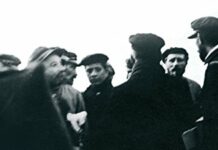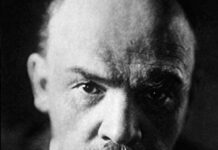
Ebook Info
- Published: 2009
- Number of pages: 592 pages
- Format: PDF
- File Size: 64.05 MB
- Authors: Robert Service
Description
Almost two decades have passed since the collapse of communism in Eastern Europe and the USSR. Robert Service, one of our finest historians of modern Russia, sets out to examine the history of communism throughout the world. His uncomfortable conclusion – and an important message for the twenty-first century – is that although communism in its original form is now dead or dying, the poverty and injustice that enabled its rise are still dangerously alive. Unsettling, compellingly written and brilliantly argued, this is a superb work of history and one that demands to be read. ‘Bears all the hallmarks of a classic work of historical literature … the true international legacy of communism [is] analysed to magisterial effect in this exhilarating work’ Hwyel Williams New Statesman ‘One of the best-ever studies of the subject … a remarkable accomplishment’ Economist ‘An outstanding book, written with grace and style’ Daily Telegraph ‘[A] brilliantly distilled world history of communism … Confronted by Service’s amazing array of evidence to show that communism could only ever have flourished under conditions of extreme and all-pervasive oppression, only the determinedly softheaded would try to argue with him’ Craig Brown, Mail on Sunday
User’s Reviews
Reviews from Amazon users which were colected at the time this book was published on the website:
⭐If you’re trying to understand Communism, you’ll definitely find better reads elsewhere. Robert Service is an excellent writer – but his account is far too breezy. He elides over important details in order to focus on non-important slam dunks on easy targets (any Communist that’s covered, really), which makes for entertaining reading, but doesn’t necessarily educate the reader. Service isn’t really wrong about Communism, it’s more that his account smacks of western partisanship in a way that supersedes analysis (such as his soft touch when noting American anti-communist interference in post-war European politics). I want my history to be rigorous – I don’t really mind his having an ideological stance (we all have a stance in the world and I certainly don’t mind his opposition to the obvious nightmares of Lenin, Stalin, Mao, et al.), but that shouldn’t lead to this lopsided account. I read this in graduate school and I would assign it – but along with other works that are meant to elicit discussions on how historians practice history and how their individuality influences their analyses.
⭐It is welcome news, or should be, to have an overall treatment of Communism from a major scholar. But Professor Service’s work is superficial and riddled with errors.I enjoyed Professor Service’s taking-down of the likes of Beatrice and Sidney Webb, and other fellow-travellers. In retrospect, and not only in retrospect, these cultured products of the West were more harmful to liberty than regiments of Soviet troops. But even when Professor Service is so obviously right, he goes wrong. “What inspired [the Webbs] to speak for Stalin ? …. They believed in central and state planning….” (P. 207) If only things were that simple !I assume that the author’s treatment of the Soviet Union is competent, but this cannot be said of what he has to say of the Communist parties in Western Europe and America. A seemingly small error is indicative of much that went wrong with this book.Speaking of the famous African-American baritone Paul Robeson, Professor Service tells us (p. 278), without benefit of footnotes of any kind: “He never joined the Communist Party of the USA. (Not that this saved him from investigation by Joe McCarthy.)”The first thing that is curious here is that Professor Service gives a nod to those — unlike himself — who think that the late Senator McCarthy was a far greater threat to humanity than the late Joseph Stalin. Coming from a staunch anti-Communist like Professor Service, this is a false note.But what about the substance of the claim that Robeson never was a Party member ? How does Professor Service know that this is so ? True, Robeson always claimed, throughout his life, that he was not a member. But those who know about the American CP — this is the main point — also know that there always were secret members in addition to the open ones. Robeson’s unfailing support of every twist of the Party line, including his support of the Stalin-Hitler pact, always led to the strong suspicion, among those who understood the Party, that he most probably was under Party discipline, i.e. that he was a member. If Professor Service has no such suspicion, I would say that he knows little about American communism.Of course, in the case of Robeson, we can go beyond suspicion. We have evidence, from the very mouth of one of the horses, that he was a Party member: “My own most precious moments with Paul were when I met with him to accept his dues and renew his yearly membership in the CPUSA. I and other Communist leaders like Henry Winston, the Party’s late, beloved national chair, met with Paul to brief him on politics and Party policies and to discuss his work and struggles.” Gus Hall, “Paul Robeson: An American Communist,” published by CPUSA, 1988.The Robeson matter by itself is a detail. But Professor Service’s complete misunderstanding of the political alignments of the 1930’s is more than a detail: “But undoubtedly it was the socialists in Europe and North America who bowed lowest in their admiration of Stalin.”(p. 212). And this goes with Professor Service’s ignoring of the profound anti-Stalinism of the Weimar-era SPD in Germany, of the inter-war SFIO of France (think Leon Blum !), of the anti-Bolshevism of British Labour, of the anti-Communist struggles of the CCF in Canada and the Socialist Party of the US (think Norman Thomas !).A reader looking for further reading about, say, the French or German Communist parties will find no help at all in Professor Service’s sparse footnotes. Take the rich historiography on the French CP. It seems that Professor Service is completely innocent of any knowledge here. The important “Histoire” by Courteois and Lazar is not on the bibliography. There is no title by Annie Kriegel. There is no mention of Robrieux. And, as far as Professor Service is concerned, the German scholars who spent so many years studying the KPD (Ossip Flechtheim, Hermann Weber, etc.) might as well have saved their trouble.In short, no, this book is simply not good enough.
⭐Robert Service writes and excellent book that tells the story of the beginning of Communism all the way to its ultimate failure. He tells the truth about how abuse lead to the rise of Communism which in turn installed its own abuse under the guise of being fair. Service also explains how communism failed and how countries that claim to be communist today and are thriving (such as China) are far from actually being communist at all! This should be required reading in High School government classes! I gave 4 stars only because the front cover of the book and its binding seemed cheap. But it didn’t fall apart when reading it (I am very hard on books). Great read I highly recommend.
⭐Id do personally appreciate the highly critical attitude of the author towards the phenomena of communism. As a citizen of an ex communist country I can confirm that he properly understood the consequences and the impact of the ideology on the peoples subjected to its influence.After reading the book I have shaped the answer to the question “Why?” that I was searching for. I could explain myself why such a senseless delusion was accepted by societies ruled by it. The answer is well explained with all the complexity involved. Shortly, it wasn’t accepted. It was forced onto people by madmen.The topic is broad and the author has chosen the amount of information and the topics thatI was pleased by the well balanced choice of topics and the amount of information included in the book. It is neither too shallow nor unbearably detailed.Best wishes for the author.
⭐I bought it as a gift for my Chinese friend who lives in China and came to the US. He read it within three nights and left in my house. “Don’t you know we have a border control?” he asked. “But keep it for me, when I come back I read it again.”
⭐I loved this book, felt like I knew so much more about the Russian revolution. The book was dark, and it made me sad that so many had to suffer, but a book is good when it draws you into the time period so well.
⭐Takes it all in, very sober and well written. Ideal for people who know little about communism and a solid reference book for others.
⭐Robert Service is one of the best historians of communism, and this book shows why. Very well written, solidly researched and tremendously informative for Social Science students.
⭐Robert Service is a fellow of the Hoover Institution , the predominant right wing think tank in the US and it shows. Note the positive reviews on the inside cover are all from right wing media. He clearly has a fascination with Bolshevism and his biographies are rather more balanced.I don’t think anyone doubts the nature of communist governments as he describes them but to then contrast them with the superior west in 2021 is laughable propaganda. For example he states that citizens living in communist states have little access to knowledge of the rest of the world. Compared to who? The US or Britain? He states that Richard Nixon got the better of Nikita Kruschev in terms of moral arguments. Richard Nixon for god sake! In the age of climate change he states that the communist countries were environmental vandals compared to the West. Really? The book is a fair summary of communist history in a sense but it has little historical value as a result. Avoid and do your own research!
⭐This book takes an ambitious aim to give an account of the varied experiences, aspirations and application of communism across the world following the soviet revolution. The book begins with an account of Marxist theory and later chapters describe how it was interpreted and informed pollical change across Russia and influenced the wider world.I enjoyed the read but as a newer reader on the Russian revolution, I think the breath of the book makes it limited in informing less versed soviet history readers. Much of the book skims over key themes, events and background as it assumes the reader is already well versed. For example, the death of Lenin and Stalin’s political mastery is not discussed in any detail. The fall of the Tsar is not mentioned to any great degree. Key people such as Trotsky and his philosophies are not examined due to the large scope of the book. Many of the chapters seem to stand alone, such as communism in Hungary but the level of detail is again so broad that any uninformed reader will unlikely benefit from what is in essence a overview summary of some the complex events of the eastern block. As a result the book is a bit of an oddity: On one hand its too broad to better educate the novice but probably not detailed enough to benefit those with a scholarly level of communism..However, the earlier chapters of Marx and Engels writings and how Russia became the unexpected primer for communist revolution are well written and best paced, The writing is clear and largely accessible.
⭐Robert Service has provided a decent, detailed, yet highly readable account of the world communist movement, that leaves no stone unturned.Most of the book, especially the earlier part, is focused on the USSR, but there is decent insight into Yugoslavia, Cuba, and China. However, Comrades is not a simple chronology of the world communist movement, it is an account of the factors, the attitudes, and the evolving nature of communism, and why it ultimately failed.Service begins with a theoretical analysis of pre-Marxist communist, followed with examination of Marx and Engels, the early communist movement, leading to the Russian Revolution. While it focuses on the policies, power struggles, and other key factors, it frequently backtracks to the attitudes, and fortunes of people in communist parties all around the world, particularly Great Britain, Italy, France and the USA.The only criticism one can have with Comrades is that certain countries, perhaps some of the most severe, such as Albania and North Korea, could have done with some more insight, but with a book so decently constructed, one can hardly quibble.Service reaches a conclusion, held by many, that Communism, as we knew in the Soviet or Maoist models, is highly unlikely to ever return in such a guise. However, the legacy of communism is strongly ingrained and is unlikely to ever disappear in the near future. Such a legacy is the burden on democratic development, authoritarian practices, and the continual nature of the Chinese state, which retains all the key characteristics of communist authoritarianism.Robert Service decently accounts for the failure of communism, and with regard to the pivotal moment, Perestroika, he delivers a fairly positive portrait of Gorbachev, but concedes that ultimately Gorbachev held a romanticized view of a caring, humanitanitarian Lenin who ultimately never existed.
⭐Like Communism itself, this text of this book is dominated by the history of the USSR from 1917 to 1991. The result of this is that pre-1917 the often disparate ideas of those who called themselves “Communists” forms the basis of the text, but afterwards any spirit of intellectual enquiry vanishes, and the book is simply a straightforward history of the countries of the Eastern Bloc (and China from 1949).There are digressions into the West, particularly the Italian and French Communist Parties – and an amusing look at the splintered history of the British Communist movement – but the majority of the book is an overview of the history of those countries that called themselves “Communist” or “Socialist”. The unchecked nature of the policy pursued in those countries is established, and while the book presents a factual base for all assertions the occasional authorial sideswipe at a regime or leader does sometimes jar; however, this slight editorial mis-step does rather pale against the crimes taking place in the countries themselves.Covering such a vast number of countries does mean that any individual focus can be lost: the fall of the Ceaușescu regime takes two pages, while there is hardly a mention of what happens to the Baltic states from 1945 to 1989. Latin America is covered in more depth: both Cuba and Chile are given a relatively sympathetic hearing, with the government of Allende in Chile repeatedly shown to be the only near-Communist state that did not repress its population. The leaders in Eastern Europe post-1945 do not have the page-count to get across any sense of individuality or motivation behind their actions (with the possible exception of Tito) making these sections of the book more of a slog, though it may be that this colourlessness accurately reflects the regimes in question.The excellent final chapter of the book suggests that Communism as demonstrated in the world should be seen as a peculiar accident of Russian history; if the “Ten Days That Shook The World” had failed to shake then it is unlikely that other Communist regimes would have either formed, or been allowed to form by the capitalist states. Speculation of this kind is absent from the earlier parts of the history, and while this makes for a shorter book it suggests that a longer work may well have been an even more rewarding one.
⭐Comrades is probably the best one-volume summary of the rise and fall of Communism you will find. Certainly overshadowed in specific detail by books focusssing on certain leaders or revolutions, but as an overall viewpoint this book is unbeaten. Also very interesting as it went into the details about Communist organisations in non-communist countries, which I had not come across anywhere else.
Keywords
Free Download Comrades: Communism: A World History in PDF format
Comrades: Communism: A World History PDF Free Download
Download Comrades: Communism: A World History 2009 PDF Free
Comrades: Communism: A World History 2009 PDF Free Download
Download Comrades: Communism: A World History PDF
Free Download Ebook Comrades: Communism: A World History





